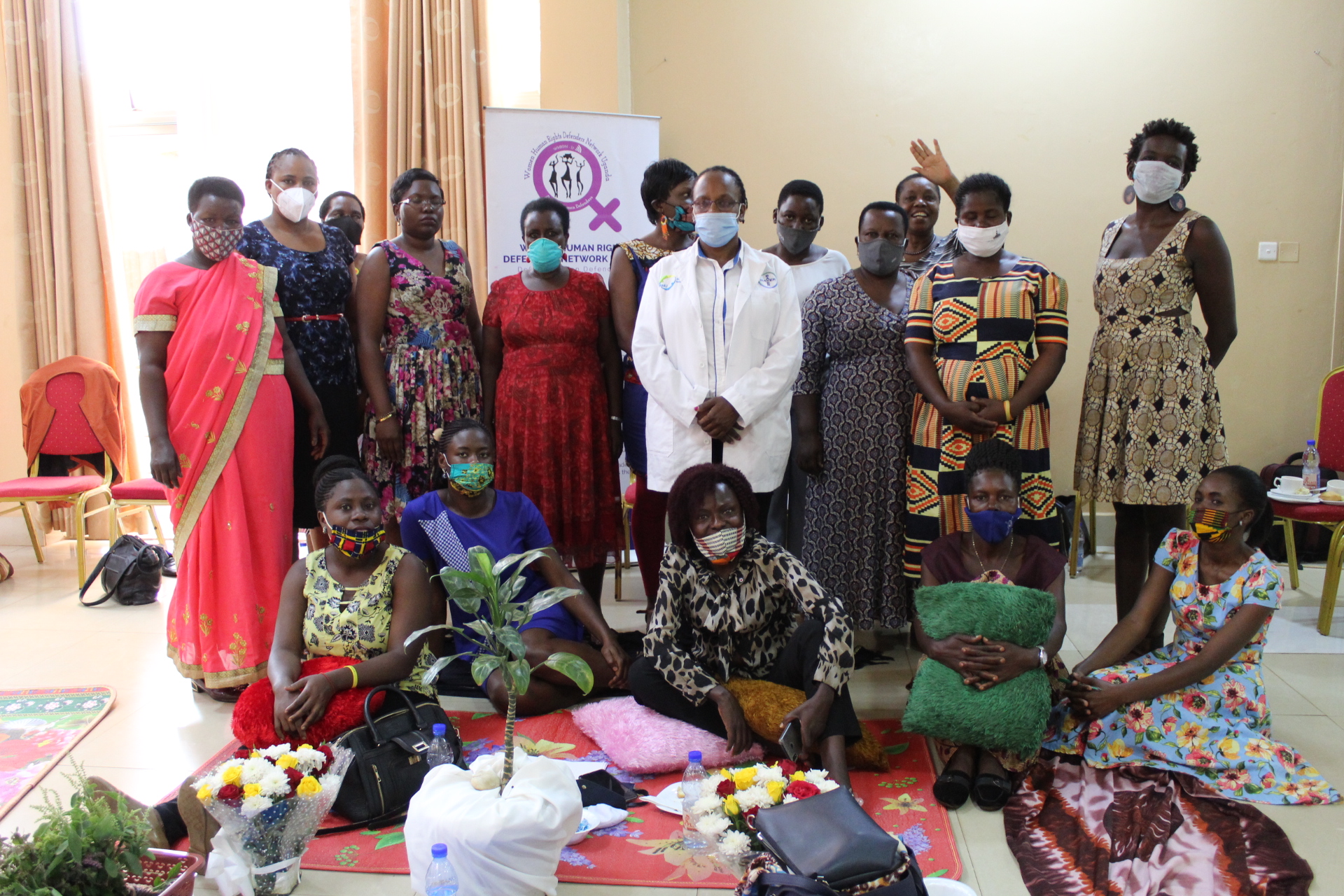Caption: Group photo of Women HRDs with Dr Linda Birungi.
The WHRDNU held a workshop for 14 WHRDs regional focal person representatives from different sub regions namely Acholi, Lango, Karamoja, Kigezi, Albertine, Rwenzori, Ankole, Busoga, Bagisu, Teso, Sebei, Bukedia, Budama, Bunyoro and rural Buganda under the theme “Promoting a culture of activism rooted in practices of self-care, mutual support and well-being” on 13th – 14th August 2020.
The workshop kicked off with the WHRDNU secretariat welcoming the participants and thanking them for attending the workshop. The objective was reiterated which was to provide a platform and process for WHRDs to deal with emotional and physical trauma and begin to prioritize their own well-being as a personal act. She further mentioned that the workshop is for them to reflect, relax, learn and enjoy. She invited them to feel free since this was a free space for all of them to network and commiserate with each other.
The WHRDs raised several challenges they faced repeatedly which include but are not limited to: Heavy workloads, stress and fatigue, family issues, financial instability, marital problems, personal frustrations and anxiety of what next in life. There was a counselor from Healing Talk Services who encouraged the WHRDs to seek out counseling services at least once a month and also engage in group counseling which reduces the stress of feeling lonely, overwhelmed and individually exposed.
Burden sharing was one of the activities that was done to help the WHRDs unpack the loaded up feelings of fatigue, bitterness and burn-outs that may affect their Human Rights work if not dealt with. A facilitator from Fitclique Africa helped address the several burdens that the WHRDs shared during the session by giving them tips on planning out an entire week and saving some funds to reduce on the stress of unpreparedness and distractions that come because of lack of proper planning.
Healing and care with medical and health practices was one of the sessions that shed light on reproductive health, health risks, and best health practices for WHRDs. Dr. Linda Birungi a gynecologist at Reproductive Health Uganda enlightened the WHRDs about their reproductive health, family planning and menstrual periods. She also advised the ladies to go for cervical cancer screening every after 3 years for those who don’t have HIV/AIDS and every year for those with it.
The self-care, well-being and collective healing workshop ended on a high note with the WHRDs appreciating the help and self-love practices they received and promised to incorporate them into their daily life. A new culture of activism that is rooted in practices of self-care and mutual support was also launched as a necessary condition of women’s movements in Uganda.
